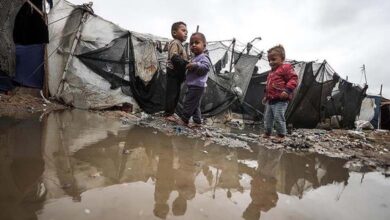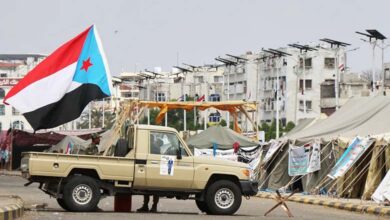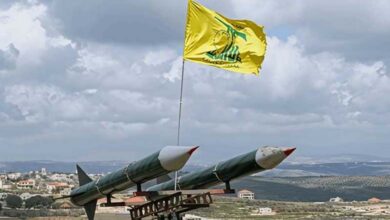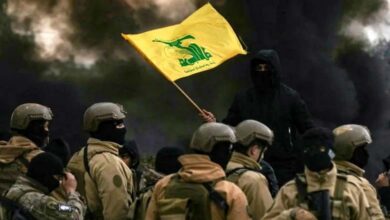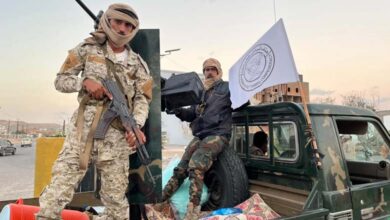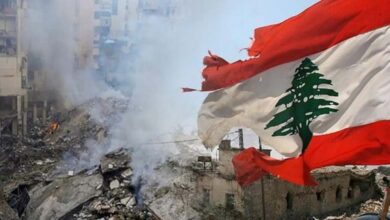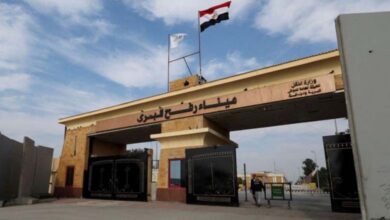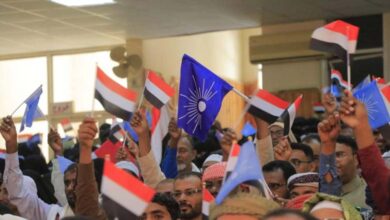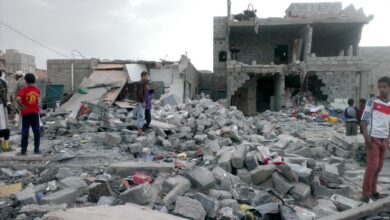“Netanyahu’s Final Gamble”: Why Did Israel Invade Rafah?

Despite internal and external pressures, the government of Benjamin Netanyahu executed its plan to invade Rafah, a move analysts attribute to Tel Aviv’s pursuit of bolstering “gradual deterrence and pressure on Hamas” and as a “last chance for achieving a military victory or releasing hostages to alleviate internal crises.”
Two military experts warned that “the outcome of the Israeli equation, with erroneous estimates and calculations, will be zero, as the course of military operations will not be favorable to either party.”
After Israel’s control over it… Learn about the significance of the Rafah crossing to Gaza
According to experts, Israel must understand that “if it eliminates the remaining fighters of Hamas, it also means at the same time that it will eliminate the remaining hostages, which is a very difficult choice.”
The Israeli army intensified its airstrikes on Gaza on Wednesday after taking control of the strategic Rafah crossing with Egypt, which hosts intensive talks to reach an agreement between the Israeli state and Hamas committing both parties to a ceasefire.
Last Chance
Major General Muhammad Qushqush, a military advisor at the Nasser Higher Military Academy and advisor to the Egyptian Center for Strategic Thought and Studies, said, “Israel sees the invasion of Rafah as its last chance to eliminate the remaining fighters of Hamas and end the capabilities of the military movement, and release the hostages.”
“Qushqush” added that “the attack on Rafah is the final step from an Israeli perspective, after Israeli forces were present at the demarcation line between Khan Yunis and Rafah, with violations on the southern side towards Kerem Abu Salem, where the truck crossing area is located.”
He pointed out in this regard that “when Israel thought about expanding southwest to Palestinian Rafah, it believed that it would close the door on Hamas members and then eliminate them, but the equation will have a zero outcome, as the course of military operations will not be in favor of either party.”
Difficult Choice
In his military assessment, the advisor at the Nasser Higher Military Academy believed that “Israel must realize that if it eliminates the remaining fighters of Hamas, it also means at the same time that it will eliminate the remaining hostages, which is a very difficult choice for it.”
Other challenges facing Israel, added the prominent Egyptian military expert, include not knowing the extent of the remaining tunnels in Palestinian Rafah or how the militants are deployed.
Regarding the path and form of the military operation, “Qushqush” confirmed that the current final stage is not a battle of tanks and heavy artillery, but rather special forces, fierce ground combat, and battles inside tunnels.
He said that “the strength point held by the Palestinian side is the hostages, and it must be exploited well to reach a point of balance.”
Regarding the end date of the military operation in Rafah, Qushqush said, “It is difficult to estimate the end date of the operation, because military action is progressing alongside negotiations and political action, which will continue intensively in the coming period.”
And while he pointed out that “the next stage is difficult,” the advisor to the Egyptian Center for Strategic Thought and Studies affirmed that “despite its difficulty, it will be in favor of the Palestinian cause and reaching a 1-to-1 equation, not (zero to zero).”
The Egyptian expert did not rule out that diplomatic efforts might yield better results in the coming hours.
Regarding the impact of the Israeli military operation in Rafah on Egypt, he said: “If we consider Rafah as the center of the problem, what is happening poses an indirect threat to Egyptian national security, but if the operations reach the Egyptian borders directly, it will be a threat to Egyptian national security.”
He emphasized that “Egypt’s role is not just mediation, because it is much bigger than that. Cairo works to preserve its national security and the security of Palestine as well,” considering that “the strategic diplomatic solution Egypt seeks is to end this war at this stage and solve the problem of Israeli hostages and establish a comprehensive solution to the conflict through the declaration of a two-state solution.”
Gradual Deterrence
In his analysis of the current field developments, Major General Nasr Salem, former head of intelligence and advisor at the Nasser Academy for Military Sciences in Cairo, said in an exclusive interview with “Al-Ain Al-Ikhbariya” that “the Israeli military operation and its control over the Rafah crossing in Palestine comes within the framework of ‘gradual deterrence,’ with the aim of psychological pressure on the Hamas delegation in Cairo, until the latter accepts what Israel will propose and obtains concessions from the movement, and refrains from being strict in its demands.”
Talks are being held in Cairo, a day after Hamas agreed to a proposal for a ceasefire presented by Egypt and Qatar.
A Hamas delegation arrived in Cairo on Tuesday evening from Doha to follow up on the ceasefire negotiations.
A Hamas official said that the Cairo talks might be “the last chance” to recover the hostages held in the Gaza Strip.
Major General Nasr Salem stressed that “what matters to the Israeli Prime Minister, faced with an angry domestic public opinion, is working to recover the hostages and eliminate the four Hamas brigades, which the occupation army says are present in Rafah.”
Full Readiness
The prominent Egyptian military expert pointed out that “the Egyptian forces are in a state of readiness, vigilance, and full readiness, and Israel knows very well the capability of the Egyptian army to protect the borders and preserve Egyptian national security.”
In his opinion, Hamas‘ acceptance of the Egyptian proposal for a ceasefire on Monday disrupted Israel’s calculations, “because they were preparing for a ground invasion operation without fail.”
Rafah crossing has become a matter of international concern in the context of the raging war between Israel and Hamas for months, especially since it is the only gateway for aid from outside Israel directly to the Strip.
It has also become the only exit that does not lead to Israeli territory, and its importance has increased with the direction of hundreds of thousands of Palestinians towards southern Gaza from the north of the Strip, fleeing Israeli bombardment.
Israeli Prime Minister Benjamin Netanyahu confirmed sending an Israeli delegation to Cairo, saying that he had instructed the delegation to be “firm about the necessary conditions for the release” of the hostages and the “basic requirements to ensure Israel’s security.”
Meanwhile, Israeli Defense Minister Yoav Galant warned Tuesday that Israel is prepared to “deepen” its operations in Gaza if ceasefire talks fail.
In a statement after a tour in Rafah, he said that Israel is prepared “to make concessions” to recover the hostages.
He added, “But if this option is not available, we will move towards deepening the operation, and this will happen in all parts of the sector, in the south, in the center, and in the north.”


